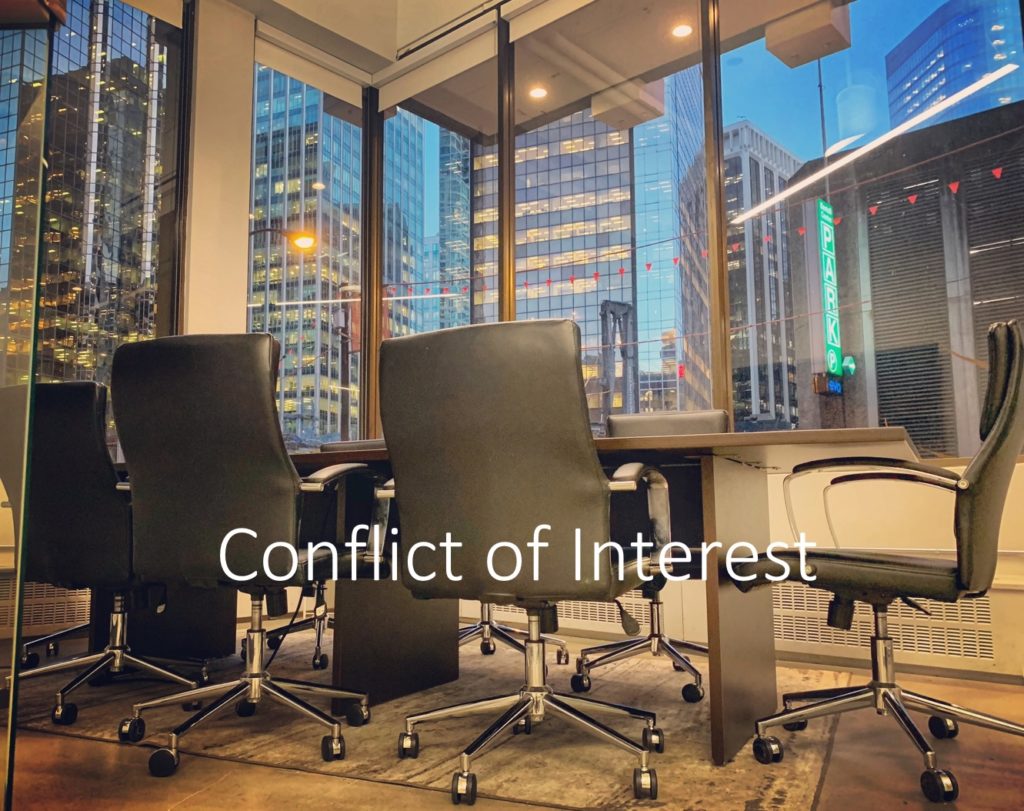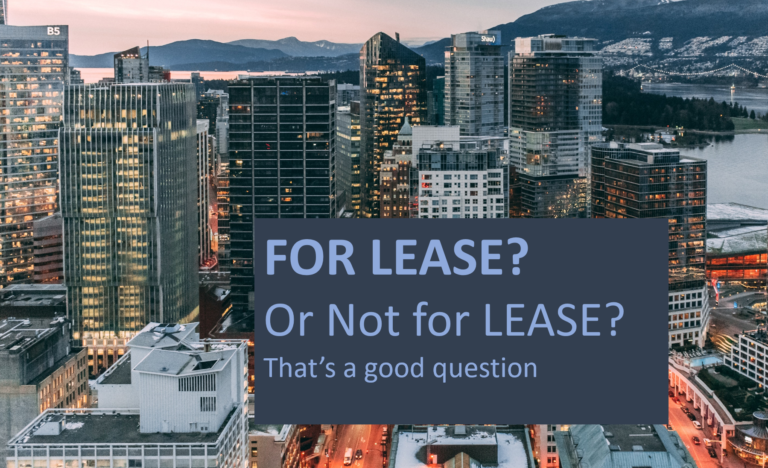Oftentimes, outdated practices need to be changed. But many hold the attitude, “it’s always been this way.” But then something comes along and blows everything wide open. So then we are forced to pivot or fall behind.
This is what is happening to the conventional lease model for commercial offices.
Gone are the days where this model is necessary or even recommended for business owners now that Hybrid Work is trending.
So what is next? Why is it obsolete? And what will be the future of work as we know it?
In this article, I will answer those questions and more! Keep reading.
Quick Navigation Links:
- The Real Cost Of A Traditional Office Lease
- The Risk Of A Traditional Office Lease To The Landlord And Tenant
- The Past, Present, And Future Of Work
The Real Cost Of A Traditional Office Lease
The traditional office lease model has been in use for many years. But the challenges and issues tenants have faced with this model are important to note.
I was in a discussion recently with a few of my fellow coworking colleagues who were supporting the landlord and criticizing a partnership between flex office solution providers and property owners. And that we shouldn’t pin the risk on the landlords and make changes.
But I question why not? We are in this together and there are better options now going forward.
What Can Go Wrong With A Traditional Office Lease?
Especially when the CEO of a tech company is wearing a hardhat and not focused on building their business.

Most companies need to meet their customers’ needs. A company cannot simply decide they want to sell a product and then force the customer to buy. The product should meet the customers’ needs, correct?
But, in this case, the landlord could not sell something further away from what the tenant actually needs:
- They can never sell a tenant the exact amount of space they need; it’s either too much or too little.
- They force them to make long-term commitments to get a reasonable rate.
- Between the developer, the lawyer, the leasing agent and the landlord, it would’nt be an over-statement to suggest this is a collusion.
Now it sounds like I’m going to gripe a little bit, like I have some axe to grind or something. You bet I do.
Let me start with the developer. Have you ever seen a 68-page CCDC contractor agreement? Yes, the one that the developer gives you that they will never sign if it’s a performance agreement.
A performance agreement is a type of construction agreement where the contractor agrees to provide a fixed quote and timeline. If the contractor goes over budget or over time they are responsible for the cost incurred.
However, contracts are aware that it is common for a job to go over budget or take longer than anticipated. Thats why most contractors will never sign a performance agreement!
That agreement allows them to always go over budget and overtime. One day you’re a tech founder, or a CEO of some finance company, then overnight you get a crash course on construction electrical flooring material HVAC (whatever that stands for).
You have daily conference calls with project managers and architects. Yes, you get another crash course on seismic bracing for the walls you’re building.
Your 9 hour work days are now 12 hour work days because you spend two hours picking carpet colours with your designer and the other hour placing wall socket positions. You become heavily involved in renovating this new office space.
Then, you have to hire a lawyer that will help you through the 48 page lease agreement. So, you pay them their 10 grand.
But these documents protect only the landlords. You only really understand what these terms in the lease mean once you start using the space. But of course by that time it’s too late, you’re only eight months into a 10-year lease.
Issues With The Leasing Agents
In a lot of cases, the commercial leasing agent represents both the buyer and the seller. So there is a bit of Conflict of Interest.

However, in some cases, you can hire a commercial leasing agent that represents just you as a tenant. But wait a minute, you will probably be a once in a lifetime customer for them, and how often do you think they will bring deals to the same landlord? Many times of course.
So, you know who they really work for.
If the leasing agent convinces you to sign a five-year lease and you default in 3 years, does a landlord have to pay back the commission? No. So if you default, does it affect the commercial leasing agent? For sure it does. Now they get another kick at the can.
On one hand, the leasing agent wants to sign the longest term leases because they get the biggest commission. On the other hand, they want this property to turn over and over and over and over.
And I’m not going to get into the environmental impact of this obsolete model in this article.
The Risk Of A Traditional Office Lease To The Landlord And Tenant
Let’s talk about the balance of risk between a landlord and a tenant.
As a tenant you signed a ten-year lease, and you give an enormous, outrageous and completely off balance amount of covenants. You put down a huge deposit, say $100,000. Then you put in a half a million-dollar tenant improvement.
You buy $30,000 – $40,000 for the furniture, you sign a personal guarantee (which you told your family about of course), you sign a business covenant, and you send them your financials. You disclose every aspect of your business. And that’s okay this is for 10 years.
So you are over $640, 000 in, not counting legal fees and any other fees.
Now that you sign this with your accountant, they enter half the lease liability on your balance sheet? Part of it goes into your current liabilities, some part of it goes into your long-term. This hugely affects your balance sheet, but you do it.
Now let’s say for example you sign this lease in 2006 and two darn years later in 2008 you face the financial crisis. So, for a few months or maybe a quarter you have some difficulty in cash flow.
Because business is unpredictable that way, it most certainly has its ups and downs. Your rent doesn’t clear on the first of the month. The very next day you get a Notice of Default. And in five short days your ‘you-know-what’ is on the street.
So you hand over your first-born for the 10-year lease and they change the locks in 5 days.
Now, your lawyer who may be your good friend and all, will show you what legal rights you have in the lease that you can rely on. But let’s be realistic, once you’re out, you’re done and it may take a year for your lawyers to try and work it out. You will never (trust me never) see the light of a courtroom if this was in your favour anyhow.
Now, if any landlord or property owners are reading this, they are probably looking a bit terse by now. But, I know a lot of property owners who will respect this problem.
You see, with this old and obsolete leasing mode, the landlords and tenants are arch-enemies. But we can and should be working with each other.
The Past, Present, And Future Of Work

You see, going back to my statement about change is slow. Traditional leased offices have been used for a long time. But as we have learned, they come with significant downsides.
This problem was recognized more than 15 years ago. In 2007, I was having lengthy conversations about this with colleagues around the world.
So, what was the proposed solution? Well, that depends on your needs. But Coworking Spaces, Hybrid Work and Virtual Offices are two possible solutions for business owners.
The first coworking movement wasn’t large-scale; it started with the independent worker that could never get into a lease actually but had very few options of where to work.
They had the choice of working from home or a coffee shop and that was it and that’s where coworking was born.
It took a dozen years before “coworking” became a term that most people ever heard of. And it’s coworking without a hyphen by the way.
We all benefited when WeWork entered the market. They spent a huge amount of marketing dollars educating the world as to what coworking means.
But that’s a different story. That’s just one flamboyant founder who messed up his own good deal. This was a classic case of an operational failure, not a failure of the business principle of coworking.
The virtual office and Hybrid Work is a more recent development and is still evolving. A virtual office allows an individual to work anywhere at any time.
It takes the traditional physical aspects of an office online, such as a reception, mailroom, and meeting room. These are now automated responses, digital mailrooms, and Zoom or another video conferencing software.
Both coworking and virtual offices offer greater flexibility, control, and savings. Those two solutions can even be blended with each other.
A recommended blended solution would be to find a Virtual Office provider who can provide you a prestigious business address in a real office building and subscribe to this Virtual Business Address service. Once you get this address, you never have to change it regardless of how many offices you locate or re-locate your team. Especially if adopt the Hybrid Work model, work from home and coworking spaces, your Business Address never has to change.
The Future Of Coworking
We, as in, “coworking operators” now need to partner with property owners and landlords, not as their arch-enemy.
The question may or may not be whether the typical company CEO now wants to avoid a long-term lease commitment and all the obligations that goes with it.
The question is now what options do these company CEOs have? In any typical or comparable Metropolis like say Vancouver, San Diego, or Philadelphia.
According to the Business Council of British Columbia, about 44% of businesses in BC employee less than 50 employees.
Let’s just talk about the company with 50 or fewer employees. Overnight, these CEOs are probably weighing their options now with their commercial office lease.
And it’s not just a long-term lease vs flex lease. This is a whole new world where a typical company of 50 employees has to have a continuity plan now that provides the solution where they can work from both home and the office.
So, does this CEO actually need an office now with 50 desks or does he enter into a flex lease with 25 desks where their employees rotate, a Hybrid Work model?
We live in a world where technology is optimizing everything. We have apps that created ride-hailing, car-share companies that are optimizing the use of the automobile. We have applications that optimize vacation homes and on and on it goes.
Now they’re going to go en-mass from home but not straight to the office or going to go in between which is the flex solution
Now, CEO’s and business owners do not need to have a traditional office lease. They could consider a coworking space and a blended virtual office model. There are many companies that offer subscriptions to a professional coworking space.
These spaces offer meeting rooms, private offices, shared office space, private rooms for video calling and much more.
An individual or a company could choose to subscribe to this kind of service and use it as they please.
Takaway
Flex office providers, Coworking Spaces, Shared office spaces, and Executive offices are basically all the same now. The lines are blurred between them and now mostly referred to as the Hybrid Work Model. We have the expertise and experience for decades. Typical property owners and landlords do not.
There are now over 40,000 flex office space providers with decades of experience. These companies have millions of hours of experience in curating office spaces and using tech to enhance productivity.
How does a landlord a property owner transition into technology and optimization and Consulting and Solutions? It’s a different leap, and its one that will bring many benefits to landlords and the tenants they partner with.
Partnering with an experienced Coworking operator will allow landlords to provide services in the growing virtual office and hybrid market. The hybrid office shift will continue to grow and so will the need for flexible office spaces.
To landlords and property owners, I’m encouraging you to find your coworker or flex office space operator. They may become your next best partner, definitely not your arch-enemy, 😉
Kevin Penstock
Founder, CEO
The Profile – The Future of Work
More Resources
